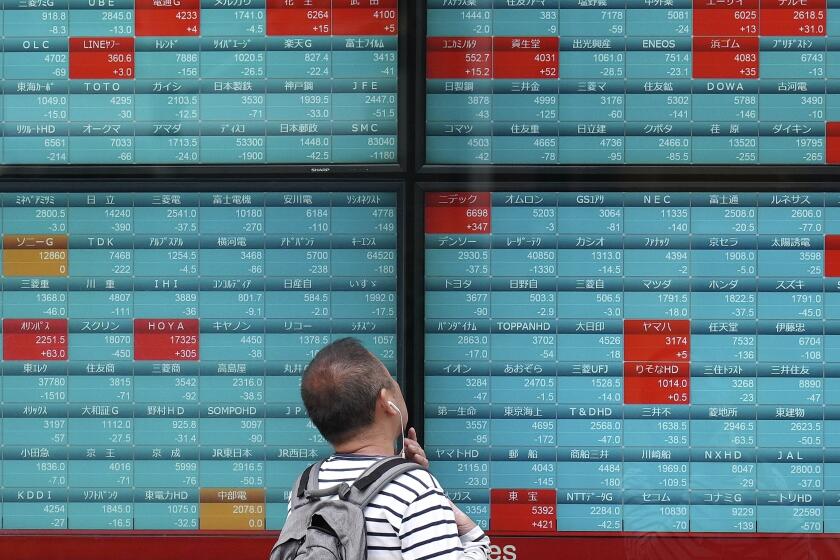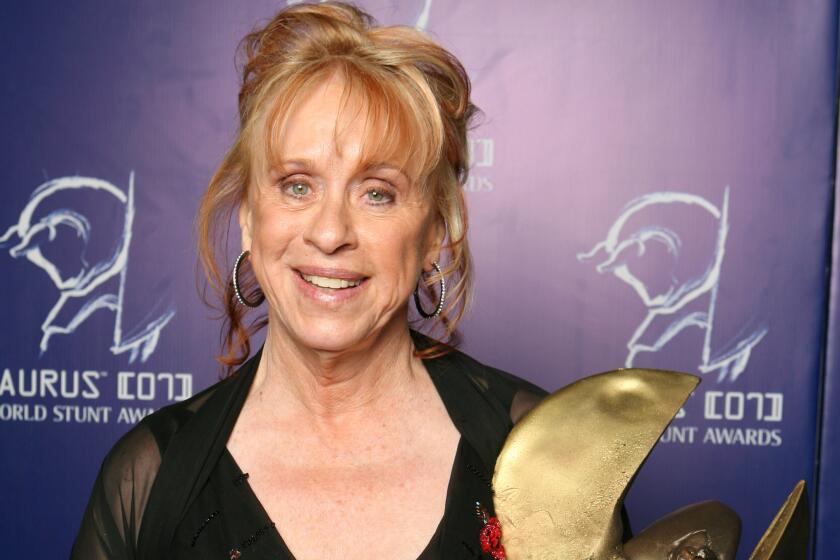Bridgestone to Buy Firestone Tire Business
Firestone Tire & Rubber Co., a longtime symbol of American industrial might, said Tuesday that it has agreed to sell off its worldwide tire business to Bridgestone Corp. of Tokyo in a billion-dollar deal.
The deal would catapult Bridgestone, which has been frustrated in its efforts to sell tires in the huge U.S. market, to the No. 2 spot in U.S. tires sales.
For Firestone--which has been making tires for 88 years--the agreement caps a nine-year effort by company President John J. Nevin to shut down inefficient tire-making factories and to expand the company’s automotive repair business.
As part of the deal, tires will still be manufactured under the Firestone name. In addition, Firestone will keep its chain of 1,500 automotive repair shops, which are seen as more profitable and faster growing than tire making.
“What Nevin has been doing is liquidating pieces of the company” in order to boost Firestone’s stock price, said Donald F. DeScenza, an analyst with Nomura Securities. “It was a conscious, deliberate plan he has followed from the outset--it was his mandate.”
Firestone’s stock jumped $9.25 on the announcement--or more than 20%--to close at $45 on the New York Stock Exchange.
The Bridgestone-Firestone deal is seen as part of a worldwide series of mergers and acquisitions among tire makers, which are trying to cope with sluggish sales and intense competition. Says tire industry analyst Richard Henderson at Pershing & Co.: “There will be only three producers in the long-term race: Goodyear, Michelin and Bridgestone.”
The deal would mean increased competition for Akron, Ohio-based Goodyear Tire & Rubber Co.--the world’s largest tire maker. The agreement may also lead to a company that could overtake Michelin of France as the world’s second-largest tire maker.
No Layoffs Expected
The Bridgestone-Firestone agreement surprised some analysts. It had been rumored that Italian tire maker Pirelli--also seeking to increase its sales in the U.S. and worldwide--also was bidding for Firestone.
Under the complex deal, Firestone’s worldwide tire-making operations--including all of its debt--would become a separate company named Firestone Tire Co., based in Akron, Ohio. Bridgestone would own 75% of the $1.5-billion joint venture, and Firestone would retain a 25% share in the company. A Firestone spokesman said no layoffs are expected at the company’s four U.S. factories.
Firestone would keep its automotive parts chain and other industrial product businesses.
Chicago-based Firestone estimates that it would receive about $1 billion in cash from the deal. The company says it plans to give “a very substantial portion” of the proceeds to Firestone stockholders.
“It sounds very much like Nevin’s strategy to maximize shareholder value,” Henderson said. “He believes that Bridgestone can manage the business better than Firestone.”
Has Much to Gain
Indeed, analysts say, Bridge-stone has much to gain from the deal, despite the billion-dollar price tag.
Bridgestone, which has about $5 billion in worldwide sales, has captured only 2% of the U.S. automobile tire market. More than $14 billion worth of automobile tires are sold annually in the U.S.--the world’s largest auto tire market.
But the combined Bridgestone-Firestone companies would claim about 11% of the U.S. market, according to Modern Tire Dealer, a tire industry trade magazine. At the end of 1987, Goodyear had about a 16% share of the market, Firestone 9%, Michelin 8.5%, Sears 7.5% and BF Goodrich 4%.
Furthermore, the new Bridgestone-Firestone joint venture would be the major supplier of products to the Firestone automotive store chain.
Bridgestone also gains Firestone factories in Europe and Latin America, where it currently has none. “In order for Bridgestone to be a global player, it is really necessary to be in Western Europe,” DeScenza said.
The Bridgestone-Firestone agreement comes at a time of sluggish tire sales worldwide. In the U.S., tire makers have seen shipments grow only about 4% between 1984 and 1987. And growth is expected to stay flat during the next few years.
Global Expansion
To boost sales and reduce costs, companies such as Bridgestone and Goodyear have expanded globally. The magnitude of the American tire market and the falling value of the dollar--which makes imported goods more expensive--have attracted other foreign tire makers. In the last few months, for example, Gencorp. sold off its General Tire subsidiary to Continental Tire of West Germany.
The stiff competition has led Firestone to move away from its traditional role as a tire maker. Founded by Harvey S. Firestone in 1900, the company was a pioneer in the mass production of tires.
But under Nevin, Firestone has boosted the number of its automotive repair shops, which account for nearly 20% of the company’s $3.9 billion in annual sales. The company has also relocated its headquarters away from Akron, Ohio--the traditional home of the nation’s rubber and tire-making industry--to Chicago and plans to change its name to Firestone Inc.
Bridgestone was founded by Shojiro Ishibashi in 1931. Ishibashi, whose last name in Japanese means “stone bridge,” wanted a “Western sounding name” for his company. So he called the company Bridge-stone.
The company, which is moving its U.S. headquarters to Nashville, Tenn., from Torrance, first started selling tires in the United States in 1967. The company has only one U.S. manufacturing plant--a truck and bus tire factory plant it bought from Firestone five years ago.
Plan to Avoid Takeover
Although Bridgestone currently has a tiny portion of U.S. auto tire sales, half of the cars imported from Japan come equipped with Bridgestone tires. The company also claims a 12% share of the truck and bus tire market in the United States.
Last year, the company sold about $400 million worth of tires in the United States.
Bridgestone is also a major manufacturer of chemicals, industrial products and ranks as one of the world’s largest bicycle makers.
In connection with Tuesday’s announcement, Firestone’s board of directors adopted a plan to fend off an unwanted takeover that might be sparked by the $1 billion it would receive. That plan would be put into motion if a party obtained 20% or more of Firestone without the board’s approval.
“It could be a very attractive to a corporate raider to take over to get that $1 billion in cash,” DeScenza said. “That’s what they’re worried about.”
The entire deal must be approved by the company’s board of directors. A final agreement is still months away, according to Firestone.






